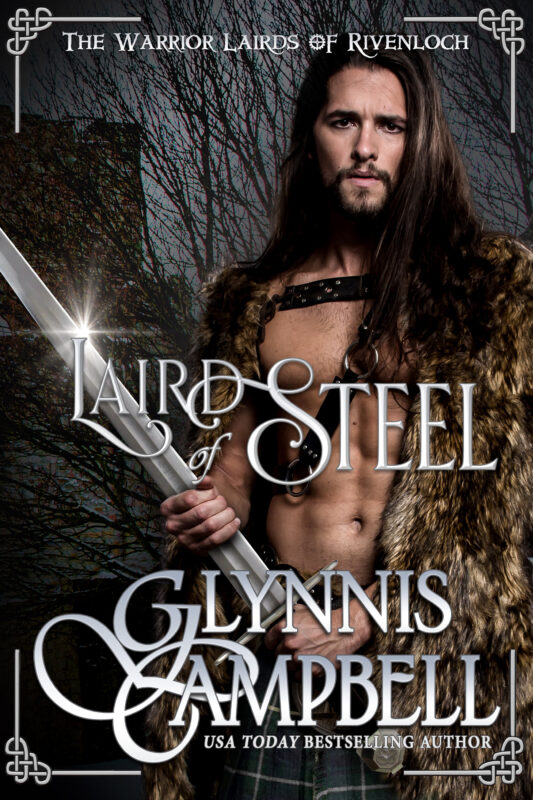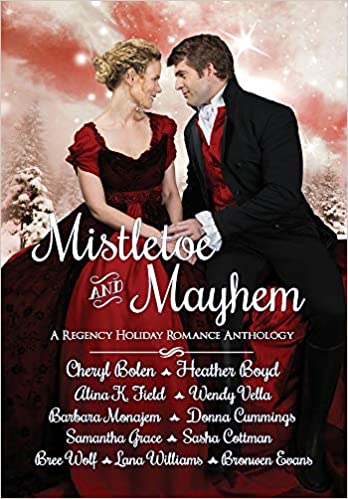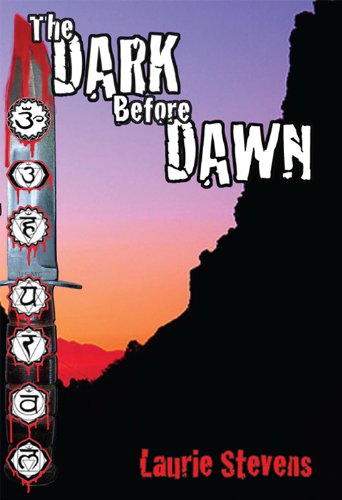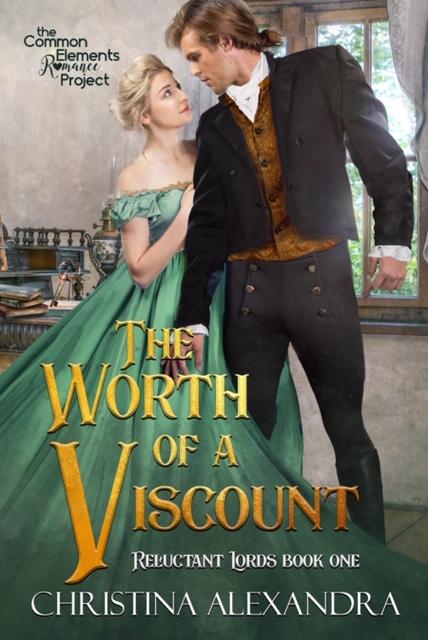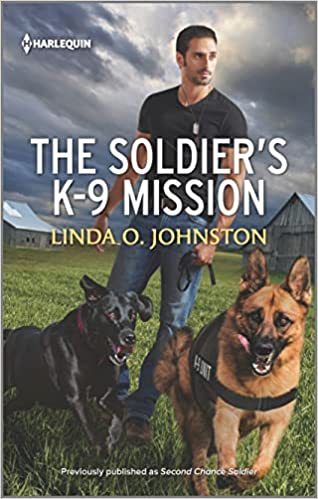Rebecca Forster September Featured Author
September 1, 2020 by Rebecca Forster in category Featured Author of the Month tagged as Josie Bates, Lost Witness, new release, Rebecca Forster., September Featured Author, The Witness Series

She marketed a world-class spa when it was still called a gym, did business in China before there were western toilettes at the Great Wall and mucked around with the sheep to find out exactly how her client’s fine wool clothing was manufactured. Then Rebecca wrote her first book and found her passion. Now, over twenty-five books later, she is a USA Today and Amazon bestselling author and writes full-time, penning thrillers that explore the emotional impact of the justice system. She earned her B.A. at Loyola, Chicago and her MBA at Loyola, Los Angeles. Rebecca has taught the Business of Creativity at University of California Long Beach Writers Certificate Program, UCLA and UC Irvine extension. Married to a Los Angeles Superior Court judge, she is the mother of two grown sons and spends her free time traveling, sewing, and playing tennis.

Josie Bates is back in Lost Witness the eighth thriller in the Witness series.
It’s two in the morning and an aging cargo ship lies off the Port of Los Angeles. Deep in the bowels of the vessel, an important man is dead and the woman who killed him is mortally wounded. On shore another man staggers out of the sea determined to save the woman before she dies or the ship sails. Exhausted and terrified, he goes to the only person he trusts to help, Josie Bates. He brings with him a history she can’t ignore, a problem that seems insurmountable, and a plea she can’t refuse. But Josie is up against international law, maritime justice, a Port Authority that doesn’t want anything to get in the way of profit, the U.S. Coast Guard who dances to the tune of politics and a captain who swears the people in question were never on his ship. With the clock ticking, Josie becomes ever more desperate to prove the woman is real and get her safely ashore. What Josie doesn’t know is that the sands of time that are running out may be her own.
More Books by Rebecca Forster
Dear Extra Squeeze Team, Writing about Family, Good Idea or Not?
August 31, 2020 by The Extra Squeeze in category The Extra Squeeze by The Extra Squeeze Team, Writing tagged as facts, Family, fiction, writing about family
Dear Extra Squeeze Team, I have a story I want to tell that is loosely based on family and friends. How do I tell my story without hurting anyone?
Robin Blakely
PR/Business Development coach for writers and artists; CEO, Creative Center of America; member, Forbes Coaches Council.
Begin by writing the complete story—beginning to end—the way you truly imagine it. Write with precision honesty without the fear of hurting anyone.
When done writing, evaluate what you have created. It is in the editing stage where you will objectively be able to decide how to share the story publicly without hurting anyone. If the finished story is meant to be fiction, you can go back and make sure physical identifiers that link to nonfiction people (like a skull tattoo on the left arm above a knife scar) are changed to protect the innocent or the not-so-innocent.
If someone has inspired you to recreate their character in a fictional world, rest assured your depiction of their internal thoughts, feelings, and motivations won’t be the tipoff that the character is loosely based on this real person; it will be the physical attributes that you choose.
Most people don’t recognize themselves in someone else’s writing unless they are told the character is modeled after them or the physical facts are eerily the same: age, body build, hair color, scars, name, physical location, profession, relationships with others, or facts from exact encounters are replayed in the work.
If the story you are telling is meant to be nonfiction, you have a different issue. In a biography or a memoir, you need to tell the truth as you know it, but you must also share your truth in a way that can be formally substantiated by the research of others. If you are afraid you might hurt someone by telling the truth in your work and you are naming names across your work, you need to consult an attorney before publication because hurting feelings may result in a lawsuit.

Jenny Jensen
Developmental editor who has worked for twenty plus years with new and established authors of both fiction and non-fiction, traditional and indie.
Cue dramatic music:
Deep Voice Over: The names in this story have been changed to protect the innocent.
That’s a start. Every writer works from what they know — even if they’re writing about elves and spaceships and unicorns. Our own experiences are what we draw on to launch our imagination. And it’s the real-life situations that often give a writer the rich soil for a gripping tale.
Just write the story. When you’ve laid it all out, step away for some distance then read it with fresh eyes to spot what might be so obvious as to be hurtful. If you find the narrative is obvious, even though it is based loosely on family and friends, then consider what the compelling idea is in this tale. What was the single most gripping element that made you want to write about it in the first place? Take that compelling idea and re-write from that prospective.
Or just start with that single compelling idea rather than with the cast of friends and family. Stories have a way of charting their own course and it’s very likely, that with that shift in perspective your story will be unique enough to withstand the scrutiny of sensitive family and friends.

Rebecca Forster
USA Today Bestselling author of 35 books, including the Witness series and the new Finn O’Brien series.
I have used family and friends for inspiration in many of our books. For the most part if I didn’t tell the individual who inspired me, they did not recognize themselves. If I did tell them I was going to do it, most of them were thrilled.
Then there came a time when I happily told my sister I had used our age differences as the foundational inspiration for my story. (she is fourteen years younger than I am and we were born on the same day). She was thrilled–until she read the book. She asked, “Is this really what you think of me?” To be fair she was the bitchy, beautiful sister accused of murder, and I was the smart but downtrodden attorney who saves her.
It had nothing to do with real life other than the span in our ages. Still, when she asked that question, I understood that there was a difference between inspiration and hitting close to home including the perception of hitting close to home.
The answer was, no, the character in no way was my sister. Their physical characteristics were the same, not their character.
What you’re talking about is even more delicate. You are going to be exploring actual things that happened to you and your family. If this is an honest memoir you need to be ready for the fallout. If this is fiction, you’ll need to be very skillful when you write to navigate the hurt feelings—or worse— that might arise. Ask yourself a) is this book is necessary to your well-being and b) if you are strong enough to face any and all consequences that will come with writing it. You are the only one who knows the answers.
H.O. Charles
Cover designer and author of the fantasy series, The Fireblade Array
Ooooh *eyes widen* “awaits gossip*
I think the only way to do that is to write under a pseudonym and don’t tell them about it. People aren’t always as stupid as we hope they are. They’ll figure out it’s them in no time!

Ever wonder what industry professionals think about the issues that can really impact our careers? Each month The Extra Squeeze features a fresh topic related to books and publishing.
Amazon mover and shaker Rebecca Forster and her handpicked team of book professionals offer frank responses from the POV of each of their specialties — Writing, Editing, PR/Biz Development, and Cover Design.
After
August 30, 2020 by Dianna Sinovic in category Quill and Moss by Dianna Sinovic tagged as Dianna Sinovic, flash Fiction, Hope, short fiction, we are not alone
I found the rooftop garden because of Captain America. We’ve become close friends, he and I. He depends on me for fresh greens, and I depend on him to keep me from taking the last step off the ledge.

The electricity blinked off citywide five weeks ago, but the evenings aren’t as dark as you’d think. There’s the residual glow in the sky long after sunset, and the ants that crawl along the windowsill in the kitchen give off a greenish hue, like those plastic glow sticks kids wear around their wrists at birthday parties—or used to, before. The Captain is crepuscular, so he rustles around just at dusk, but then falls fast asleep as I watch the clouds on the horizon with wide eyes, such an unnatural pink against the faint sprinkle of stars.
Except for me and the Captain on the sixth floor, no one else is left in this building. Before, I sometimes had to turn on my white noise app to mask the street traffic and my neighbor Javier’s blasting salsa music. Now the only sounds are the distant whine of a massive piece of machinery spinning into oblivion, fed by its emergency generator, and the thumps and rattles of my building, trying to decide how much longer it will remain upright.
The evening is my favorite time of day now. Before, I lived for the morning, up before the alarm, out the door, at work in my cubicle in the financial district a few minutes before eight. Daytime reminds me of everything I no longer have–that the city no longer has. Maybe even beyond? It’s hard to say. With no juice to charge my phone, it’s been dead since four days after. That hardly matters because I lost coverage after a day. My parents live in Florida; maybe all is well there.
For some freakish reason, the plumbing still works. When life was normal, leaky faucets and cold showers were the stuff I commiserated about with my friends. Now, I wake each morning worried that the toilet will at last stop cycling or my kitchen tap will run dry. But they keep on filling and pouring.
Once they do quit, I’ll need to leave this place. I’ve been living on canned food, heating it on my tiny balcony with the mini Weber grill I hardly ever used, before. Without electricity, my fridge isn’t much help to store perishables. In the beginning, I helped myself to the romaine and tomatoes and strawberries at the corner market; with no one around, there was no use letting it go to waste. But that has long rotted, so my visits now are to fill my cloth grocery bag with whatever cans I can carry in one trip. It’s decidedly creepy to crawl through the rubble of a dead city—no cars passing, no people yelling into their phones, no trucks trudging to collect the garbage left decomposing at curbside.
The Captain isn’t mine. Captain America isn’t his real name either. He lived on the fourth floor, and I found him in the first few days after. Guinea pigs whistle when they’re hungry or need something, and he was setting up a racket I could hear from my sixth-floor window. I went searching, taking the stairs, of course, since the elevators ran on the energy grid. He was sitting in a 2-foot wire cage, looking at me with big, soulful eyes (and big teeth), and I picked him up, his tawny fur as soft as a kitten’s.
“Hello, there, Captain,” I whispered.
It was another living thing, not counting the immortal ants and roaches. But what did I know about guinea pigs? A city branch library is about three blocks from my building, so I went looking for a book to tell me, a tough hunt given that the online catalog was offline and the lights were out. If you need to know, guinea pig books are in section 636.9—with books on other small mammals like rabbits and hamsters.
Before, I liked looking out onto the courtyard between my building and the next one, where an older fellow named Pete raised tomatoes and squash and tried to keep the squirrels from taking bites out of them. Now the courtyard floor is buried in debris, and Pete and the squirrels have vanished along with the pigeons.
Just after I brought the Captain home, and desperate for some kind of greens for him, I located the entrance to the building roof. As I popped open the steel door, the earthy scent of soil washed over me and there it was: Three long aisles containing flat after flat of lettuces, cucumbers, cherry tomatoes, and more lettuce. I stood for several minutes, not believing my find. The wind picked up and a pelting rain fell, the first since before. I felt both drenched to the bone and refreshed, watching as the droplets ran down the lettuce leaves and dripped off the ends, exuding a faint bluish glow even by the light of day. My arms and legs—and likely my head—also glowed faintly in the dampness.
Later, with the Captain asleep and night descending, I pondered this new world where the sky was pink and the rain was blue. A line had been drawn for humanity. What I would find when the Captain and I finally struck out from the city? Would we meet masses of people who had fled … or no one? Or maybe, I thought, I’m crazy, and the world is still normal, but I just can’t see it.
It is now day forty after, forty empty days and forty empty nights. I am harvesting more romaine leaves and anxiously watching the new shoots I have planted poke out from the soil. Then I hear someone. They are walking on the street below, whistling. I slip to the roof edge to listen—it’s an old folk song, “For the Times They Are A-Changin’.”
Despite our catastrophic reality, a sense of humor.
“Hey,” I shout, but he doesn’t look up, doesn’t seem to hear me.
I run for the stairs—eight flights to street level—will I make it before he’s gone? I take the steps two at a time, then three. The Captain and I are not alone after all.
Featuring Dianna Sinovic, August 2020 Author of the Month
August 28, 2020 by Dianna Sinovic in category Featured Author of the Month tagged as Dianna Sinovic, Featured Author of the Month, Quill and Moss, Short Stories
Author of the Month: Dianna Sinovic

Dianna is a contributing author in the recent Bethlehem Writers Group anthology, Untethered, Sweet, Funny & Strange Tales of the Paranormal. A man buys a painting of a jungle scene that is so realistic it seems to change in “Point of View.” She has also contributed stories for the Bethlehem Writers Roundtable ezine, including “In the Delivery.”
Born and raised in the Midwest, Dianna has also lived in three other quadrants of the U.S. She writes short stories and poetry, and is working on a full-length novel about a young woman in search of her long-lost brother.
Dianna also has a regular column, Quill and Moss, here on A Slice of Orange.
Other books by Dianna Sinovic
Don’t Tell Them
August 26, 2020 by Neetu Malik in category Poet's Day by Neetu Malik
Don’t Tell Them
It was in April they met
when rain washed away
their loneliness
hand in hand they walk
in meadows sprouting
soft blades of grass,
young and lush
their love, tender as buds germinating
from dormant seed, throbbing
with promises they swear to keep
unaware yet of summer’s heat
or autumn’s last blaze,
no icicles to freeze
the flow in their veins
so it should be, better not tell them
what awaits.
© Neetu Malik
Affiliate Links
A Slice of Orange is an affiliate with some of the booksellers listed on this website, including Barnes & Nobel, Books A Million, iBooks, Kobo, and Smashwords. This means A Slice of Orange may earn a small advertising fee from sales made through the links used on this website. There are reminders of these affiliate links on the pages for individual books.
Search A Slice of Orange
Find a Column
Archives
Featured Books
LAIRD OF STEEL
Gellir faces the one intrepid warrior he may not be able to conquer.
More info →MISTLETOE & MAYHEM: A REGENCY HOLIDAY ROMANCE ANTHOLOGY
There’s no Christmas like a Regency Christmas spent under mistletoe! New York Times Bestselling author Cheryl Bolen and friends invite you to discover true love in eleven deliciously steamy romances in this all-new holiday collection.
More info →THE DARK BEFORE DAWN
High in the Santa Monica Mountains near Los Angeles, grisly murders are taking place.
More info →THE WORTH OF A VISCOUNT
After four seasons without a single offer of marriage, Lady Maxine Pearson realizes perfection is decidedly overrated.
More info →Newsletter
Contributing Authors
Search A Slice of Orange
Find a Column
Archives
Authors in the Bookstore
- A. E. Decker
- A. J. Scudiere
- A.J. Sidransky
- Abby Collette
- Alanna Lucus
- Albert Marrin
- Alice Duncan
- Alina K. Field
- Alison Green Myers
- Andi Lawrencovna
- Andrew C Raiford
- Angela Pryce
- Aviva Vaughn
- Barbara Ankrum
- Bethlehem Writers Group, LLC
- Carol L. Wright
- Celeste Barclay
- Christina Alexandra
- Christopher D. Ochs
- Claire Davon
- Claire Naden
- Courtnee Turner Hoyle
- Courtney Annicchiarico
- D. Lieber
- Daniel V. Meier Jr.
- Debra Dixon
- Debra H. Goldstein
- Debra Holland
- Dee Ann Palmer
- Denise M. Colby
- Diane Benefiel
- Diane Sismour
- Dianna Sinovic
- DT Krippene
- E.B. Dawson
- Emilie Dallaire
- Emily Brightwell
- Emily PW Murphy
- Fae Rowen
- Faith L. Justice
- Frances Amati
- Geralyn Corcillo
- Glynnis Campbell
- Greg Jolley
- H. O. Charles
- Jaclyn Roché
- Jacqueline Diamond
- Janet Lynn and Will Zeilinger
- Jeff Baird
- Jenna Barwin
- Jenne Kern
- Jennifer D. Bokal
- Jennifer Lyon
- Jerome W. McFadden
- Jill Piscitello
- Jina Bacarr
- Jo A. Hiestand
- Jodi Bogert
- Jolina Petersheim
- Jonathan Maberry
- Joy Allyson
- Judy Duarte
- Justin Murphy
- Justine Davis
- Kat Martin
- Kidd Wadsworth
- Kitty Bucholtz
- Kristy Tate
- Larry Deibert
- Larry Hamilton
- Laura Drake
- Laurie Stevens
- Leslie Knowles
- Li-Ying Lundquist
- Linda Carroll-Bradd
- Linda Lappin
- Linda McLaughlin
- Linda O. Johnston
- Lisa Preston
- Lolo Paige
- Loran Holt
- Lyssa Kay Adams
- Madeline Ash
- Margarita Engle
- Marguerite Quantaine
- Marianne H. Donley
- Mary Castillo
- Maureen Klovers
- Megan Haskell
- Melanie Waterbury
- Melisa Rivero
- Melissa Chambers
- Melodie Winawer
- Meriam Wilhelm
- Mikel J. Wilson
- Mindy Neff
- Monica McCabe
- Nancy Brashear
- Neetu Malik
- Nikki Prince
- Once Upon Anthologies
- Paula Gail Benson
- Penny Reid
- Peter Barbour
- Priscilla Oliveras
- R. H. Kohno
- Rachel Hailey
- Ralph Hieb
- Ramcy Diek
- Ransom Stephens
- Rebecca Forster
- Renae Wrich
- Roxy Matthews
- Ryder Hunte Clancy
- Sally Paradysz
- Sheila Colon Bagley
- Simone de Muñoz
- Sophie Barnes
- Susan Squires
- T. D. Fox
- Tara C. Allred
- Tara Lain
- Tari Lynn Jewett
- Terri Osburn
- Tracy Reed
- Vera Jane Cook
- Vicki Crum
- Writing Something Romantic
Affiliate Links
A Slice of Orange is an affiliate with some of the booksellers listed on this website, including Barnes & Nobel, Books A Million, iBooks, Kobo, and Smashwords. This means A Slice of Orange may earn a small advertising fee from sales made through the links used on this website. There are reminders of these affiliate links on the pages for individual books.













































